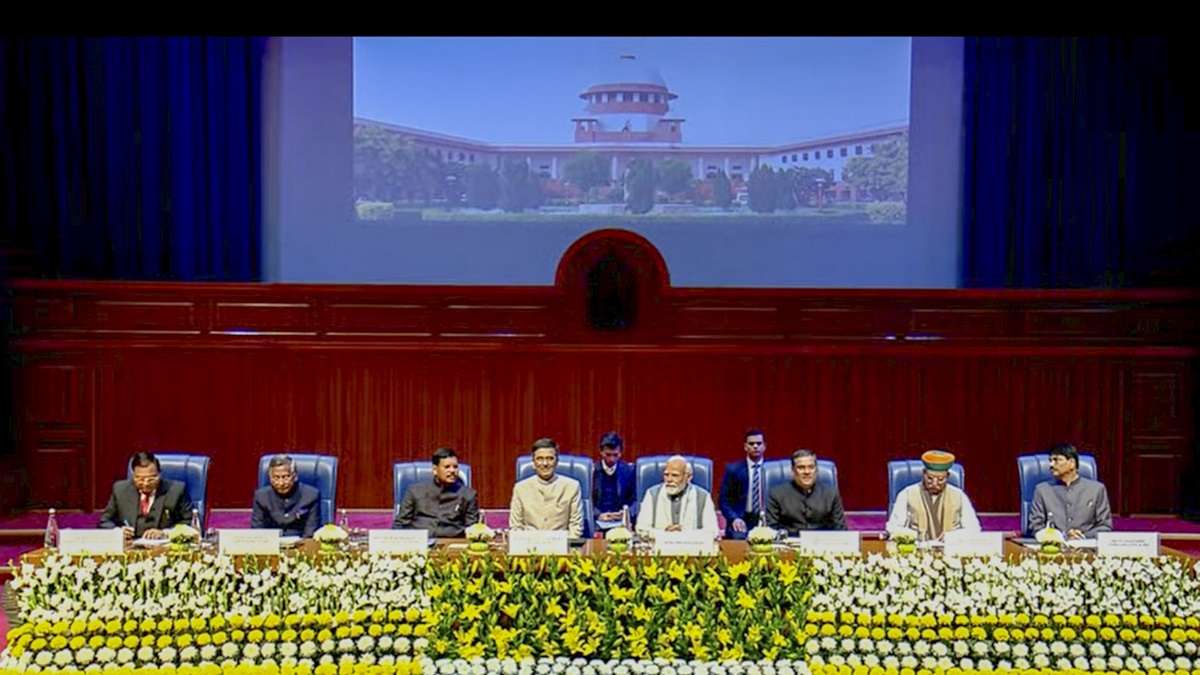PM Modi Inaugurates the Diamond Jubilee Celebration of the SC (The Hindu)

- 29 Jan 2024
Why is it in the News?
Prime Minister Narendra Modi on Sunday said ?800 crore has been approved for the expansion of the Supreme Court building complex while underlining that “ease of justice is the right of every Indian citizen and the Supreme Court is its medium”.
About the Supreme Court of India (SC):
Historical Context:
- The Supreme Court of India, inaugurated on January 26, 1950, coinciding with India's Republic Day, stands as the apex judicial body of the nation.
- Article 124 of the Constitution states that “There shall be a Supreme Court of India.”
- Situated on Tilak Marg, New Delhi, it initially operated from the Parliament House before relocating to its current edifice.
- The present building of the Supreme Court was inaugurated on August 4, 1958, by the first President of India, Dr. Rajendra Prasad.
Judicial Composition:
- The original Constitution envisioned a Supreme Court comprising a Chief Justice and seven puisne Judges, with subsequent increments authorized by Parliament to meet the burgeoning caseload.
- Presently, the Supreme Court consists of 34 Judges, including the Chief Justice, who convene in smaller benches of two or three, while larger benches of five or more, known as Constitution Benches, address critical constitutional matters or resolve conflicting decisions.
Jurisdiction and Powers:
- Endowed with original, appellate, and advisory jurisdiction, the Supreme Court serves as the final interpreter of the Constitution and the ultimate court of appeal.
- Its exclusive original jurisdiction extends to disputes between the Government of India and States or between States (Article 131), while Article 32 empowers it to safeguard Fundamental Rights through writs.
- Additionally, the Supreme Court exercises appellate jurisdiction over High Courts and other judicial bodies, with the power to entertain appeals on substantial questions of law and issue special leave to appeal under Article 136.
- Special advisory jurisdiction is vested in the Supreme Court under Article 143, allowing it to deliberate on matters referred by the President of India.
Judicial Powers and Enforcement:
- Empowered to issue writs and directions for the enforcement of Fundamental Rights, the Supreme Court wields authority to punish for contempt of court, including self-contempt.
- It can reconsider its final judgments through curative petitions and holds the authority to transfer cases between High Courts and adjudicate on election petitions.
Binding Authority:
- As the apex judicial body, judgments rendered by the Supreme Court carry binding precedent on all subordinate courts and tribunals across India, ensuring uniformity and consistency in legal interpretation and application.
